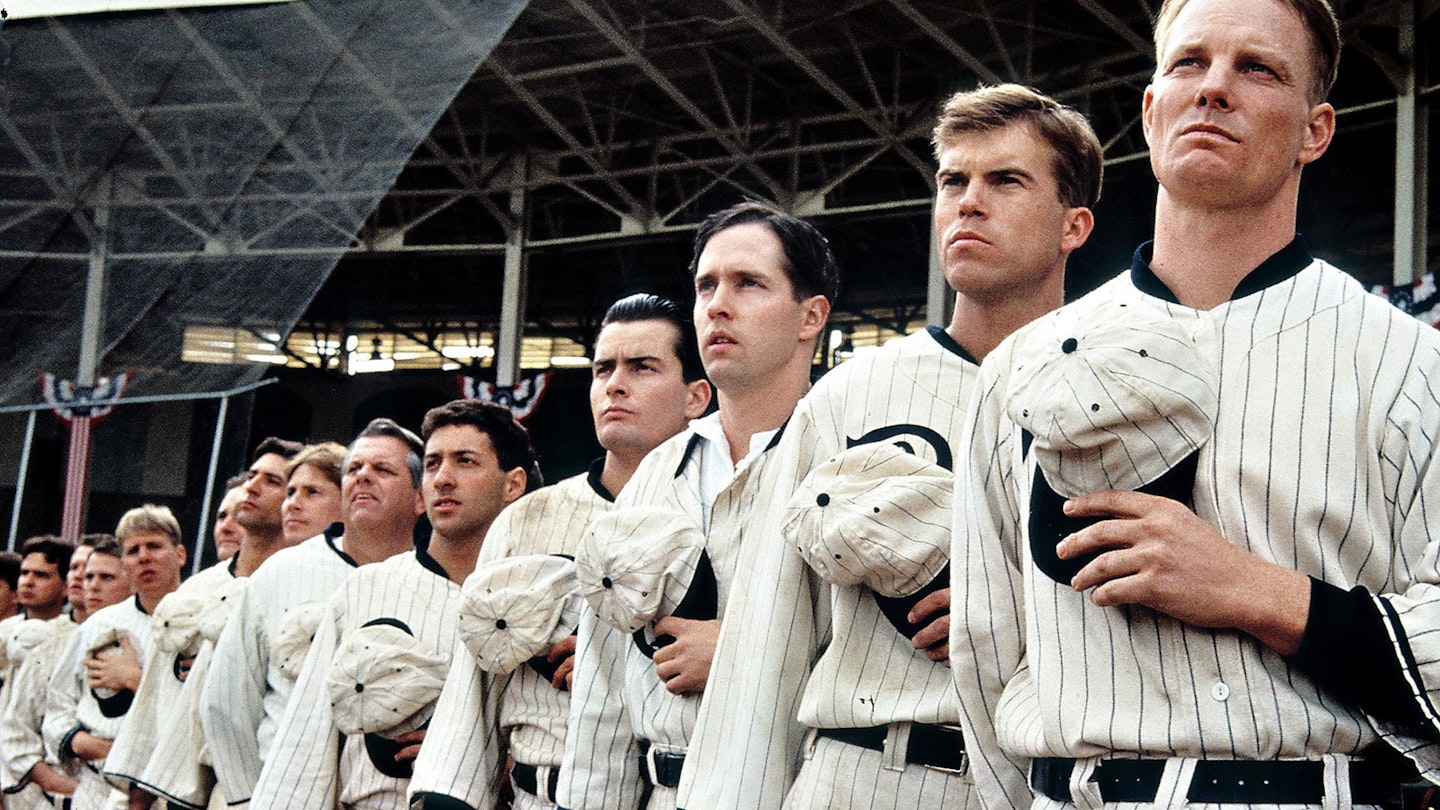Of course, Eight Men Out was never going to achieve commercial success theatrically in the UK. Why? It's about baseball. And it's not a baseball movie in the guise of a romantic comedy, a heartwarming fantasy, a biopic in which the misfits pull off a miracle, or a male weepie. But if it was just about baseball, Sayles wouldn't have been interested either.
Specifically, Eight Men Out is a meticulously detailed period drama about the Black Sox scandal of 1919, when eight players from the Chicago White Sox, then the finest in the game, were tried on charges of conspiracy. They were accused of throwing the sport's premier championship event, the World Series. Events surrounding the affair not only brought the game into disrepute, they had a lasting impact on the business of professional sport.
Even if you couldn't care less about baseball, there is a fascinating story well told here. It represents a clash between athletes, big business interests and the media, adapted from the definitive book on the scandal by Eliot Asinof (who appears in the film as a team owner).
As conspiracies go it was a muddled, even farcical business. In 1919 a lot of big money was being placed on the imminent series, with the odds heavily on the Sox, the poorly paid team owned by skinflint Charles Comiskey (Clifton James). Two small-time Philadelphia gamblers (one played by Christopher Lloyd) approached a player (Michael Rooker) about tanking the best-of-nine-games series. These gamblers went to notorious New York 'financier' Arnold Rothstein (immortalised in The Great Gatsby and here played by Michael Lerner) to bankroll their con. Rothstein turned them down but made his own deal with Boston gambler 'Sport' Sullivan (Kevin Tighe).
So two sets of rival gamblers were negotiating with a couple of not-very-bright players. These in turn recruited team-mates, some of whom agreed to go along for a variety of reasons. Some never took any money and played well; others were oblivious to the scheme and watched in fury as they went down in humiliating defeat.
A legendary Chicago reporter himself, Studs Terkel plays pioneering sports writer Hugh Fullerton, and Sayles plays Fullertonís protégé Ring Lardner, to whom he actually bears a strong resemblance (Lardner, by the way, became a celebrated satirist and was the father of Ring Lardner Jr., Oscar-winning screenwriter of Woman Of The Year and M_A_S*H). Fullerton and Lardner sniffed something fishy, eventually pieced together the sorry story and broke the bad news to heartbroken fans.
For anyone who appreciates artistic integrity and is interested in genuinely independent films, the prolific and highly personal work of John Sayles is essential viewing.
